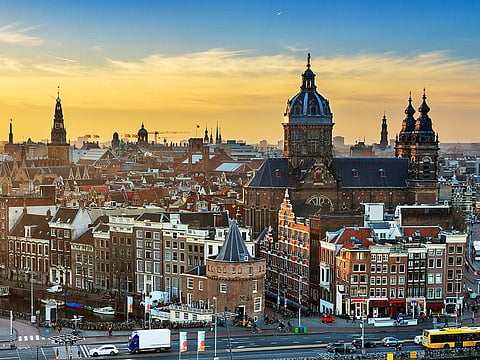Amsterdam apologises for past role in slavery
The Dutch capital is the first city in the country to offer an apology

Also In This Package
The Hague: The mayor of Amsterdam on Thursday issued an apology for the city's role in the slave trade which enriched the Dutch capital during colonial times.
"On behalf of the city, I issue an apology for the Amsterdam city council's active involvement in the commercial system of colonial slavery and global trade of people reduced to slavery," Mayor Femke Halsema said.
In the Netherlands, as in other European countries, debate over the continent's colonial past and role in slavery surged in the wake of the Black Lives Matter movement in the United States.
"It is time to integrate the great injustice of colonial slavery into our city's identity," Halsema added during a speech to mark the abolition of slavery on July 1, 1863 in Suriname and the Caribbean part of the kingdom.
At the height of its colonial empire, the United Provinces known today as the Netherlands possessed colonies like Suriname, the Caribbean island of Curacao, South Africa and Indonesia, where the Dutch East India Company was based in the 17th century.
The province of Holland, which Amsterdam is part of, was "a major player in the trade and exploitation of slaves," Halsema said, adding that in the 18th century "40 percent of economic growth came from slavery".
"And in Amsterdam, almost everyone earned money thanks to the colony of Suriname," she said, citing in particular the city council, which was co-owner and co-administrator of the colony.
The Dutch capital is the first city in the country to offer an apology. It could be followed by Rotterdam, Utrecht and the administrative capital The Hague, which are also debating the issue.
On the national level, the Netherlands has not formally apologised for its role in slavery.
Outgoing Prime Minister Mark Rutte said the period of slavery is too far back and a debate over an apology would stoke tensions.
Sign up for the Daily Briefing
Get the latest news and updates straight to your inbox








_resources1_16a3106a466_large.jpg?w=320&auto=format%2Ccompress&fit=max)
